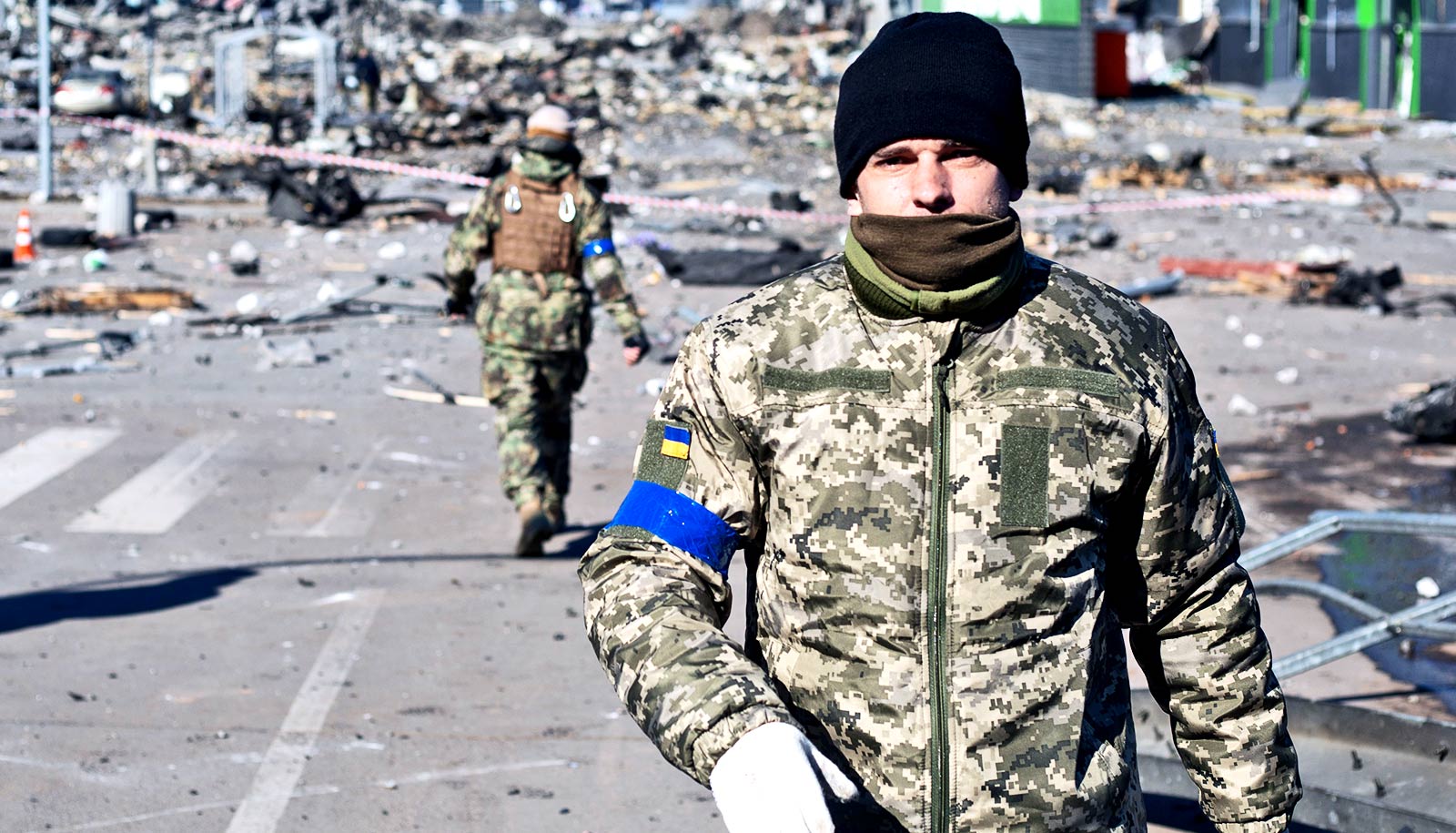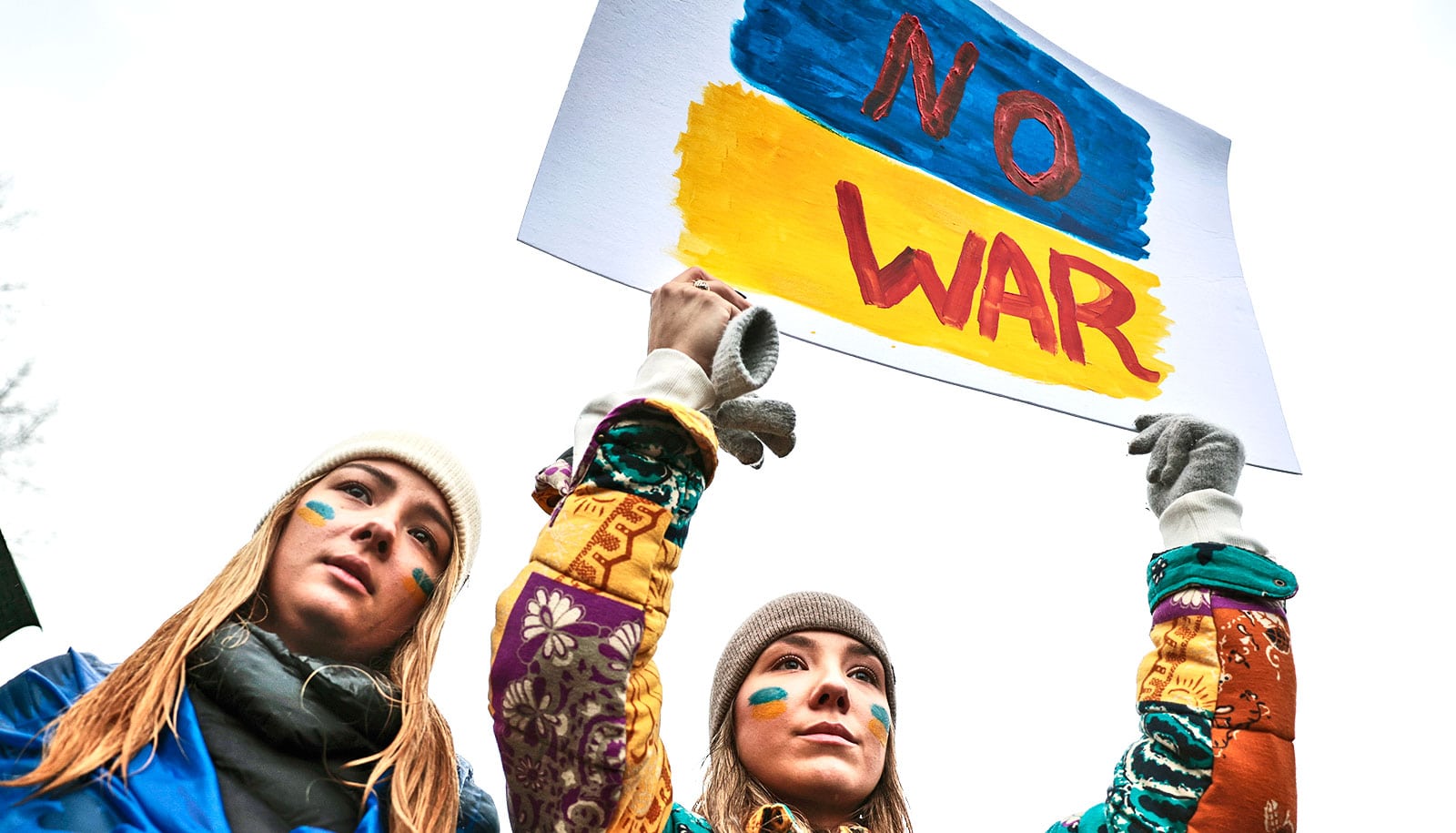Can a diplomatic solution end the war in Ukraine? The former state secretary of Switzerland, Michael Ambühl, may have some answers.
“The situation both parties are currently in can be described as a ‘chicken game,'” says Ambühl, professor emeritus at ETH Zurich. “It is crucial that this ‘chicken game’ [is] stopped before it’s too late.”
Here, he outlines the possibilities for a diplomatic solution for the war in Ukraine:
The war in Ukraine has been raging for more than three weeks now. What is your assessment of this situation?
The resistance of the Ukrainian people is impressive and deserves the utmost respect. The president, the people, and the army have managed to achieve the unimaginable: stymieing Putin’s military machinery and thwarting his visions of a blitzkrieg.
That sounds like a “but” is coming.
I’m wondering how sustainable these successes are. The forces’ relative sizes haven’t changed overnight, and the deterrent effect of Russia’s nuclear weapons is working perfectly, keeping NATO and other third parties out of the conflict. A domestic overthrow of Putin seems fairly unrealistic in the short term, just as a change of heart is unlikely without a significant shift in the situation.
And though both warring parties claim to be open to discussion, these talks have so far not led to any breakthrough. What conditions have to be met in order for this to change?
The situation both parties are currently in can be described as a “chicken game”. In this thought experiment, two cars race towards each other on a narrow road. The first driver to swerve in order to avoid certain death is branded a “chicken,” or the “loser.” This crazy “chicken game” has two possible outcomes: both will die, or one will be labeled the “loser.”
In the first case, the result is a total catastrophe, while in the second, it will be difficult to establish any sustainable peaceful solution. For this reason, it is crucial that this “chicken game” will be stopped before it’s too late.
When will it be time to do that?
When the parties come to see that they can’t achieve their goals through war.
But both parties seem to still be a long way off from this insight. What else has to happen?
For President Zelensky, the catastrophic situation in the war zone with thousands dead and millions displaced could be reason enough to enter into negotiations in earnest. He has also signaled this repeatedly. What conditions he will accept depends on Ukraine’s threshold for pain: how many casualties and refugees can the country tolerate? How much destruction?
And for President Putin?
Putin would have to come to see that he can’t simply use military force to make Ukraine part of Russia again. He also has to recognize that he is maneuvering his country into great political isolation and creating an economic crisis under which Russia will suffer for a long time to come.
How can he be brought to see this?
I see two main possibilities: The West must extend sanctions to gas and oil imports as quickly as possible and continue to support Ukraine with arms supplies.
That’s assuming that the warring parties are genuinely interested in negotiating a settlement. What would this solution have to look like?
First, any compromise would have to be acceptable for both in terms of domestic policy, allowing them to save face. Furthermore, it would have to be possible to balance the concessions: giving up one thing has to be compensated by receiving another.
A diplomatic solution would then have to sustainably govern the relationship between Kyiv and Moscow and provide guarantees for all the other surrounding countries. And it will likely also be necessary to face the bitter realization that Russia, as a nuclear superpower, is more able to assert its interests.
So the stronger party simply prevails?
It shouldn’t be like that, but unfortunately it’s often a sad reality that we see repeatedly in international relations: it is echoed, for instance, in the veto power of the United Nations Security Council, in the Treaty on the Non-Proliferation of Nuclear Weapons (NPT), and in negotiations between small states and large ones.
As a former diplomat of a small state, I have often experienced this. But this can by no means be used to justify Russia’s brutal war of aggression. Nor can it be justified by an alleged threat from NATO or Russia’s wounded soul.
What might the cornerstones of a diplomatic solution look like?
In terms of realpolitik, Ukraine would have to address two Russian demands. The first is relinquishing Crimea, which most observers do not see coming back under Kyiv’s control anyway.
For the Russian-dominated Ukrainian territories in the east, on the other hand, a special autonomous status would be conceivable, even though it will be very difficult to define the appropriate modalities.
Under international law, these territories would still belong to Ukraine, but they would largely be able to govern themselves. There are numerous models for this, from Cyprus to Transnistria to the “one country, two systems” Hong Kong model. What all these models have in common is that they prefer a constructive ambivalence or grey zone to open conflict. This autonomous status could be monitored by an OSCE mission.
And what is the second condition?
A declaration of neutrality by Ukraine—but it should leave some room for maneuver.
You’ll have to explain that.
Ukraine wouldn’t, for the time being, join any military alliance as long as doing so would be perceived as detrimental to stability and security in the region. After some time, at Ukraine’s request and together with the OSCE, an evaluation could be undertaken to determine whether the situation has changed. In other words, it wouldn’t be a permanent neutrality, as in Austria’s case, but a more adaptive concept.
Those would be no minor concessions for Ukraine. What would they get in return?
They would get security guarantees from the permanent members of the UN Security Council (P5)—and thus also from Russia—the fulfilment of which would have to be clearly defined and verifiable. These guarantees could be given in the form of a declaration of sovereignty that guarantees the territorial integrity of Ukraine, or by a non-aggression treaty that lists all prohibited measures.
Large-scale deployments of Russian troops or maneuvers at the border would have to be forbidden. As soon as these requirements are not met, an automatic “snapback mechanism” would be triggered. If Russia were to violate the requirements, the sanctions would automatically be applied again and possibly tightened. This mechanism would be a departure from previous “guarantees” that weren’t worth much, like those in the 1994 Budapest Memorandum, in which Russia accepted Ukraine’s borders.
Could that work?
A similar “snapback” clause was incorporated in the 2015 treaty between Iran and the P5 plus Germany, the “Joint Comprehensive Plan of Action”. At the time, it was unanimously approved by the UN Security Council. Of course, in this case, Russia’s veto right makes a decision at the Security Council very unlikely. However, it could be incorporated in a declaration by Western countries that support the negotiations in an appropriate way.
Wouldn’t a diplomatic solution also have to take the security interests of all countries in the region into account?
Absolutely. We need a new security architecture for Eastern Europe, which would have to be defined at a security conference. This would involve particularly guarantees for the current NATO and EU countries that were formerly part of the Soviet Union or the Warsaw Pact. As a first step in this direction, an effort could be made to draw up a joint memorandum of understanding and convene a corresponding conference as soon as possible.
All these suggestions would require a minimum level of trust in Russia’s loyalty to any agreement, but wasn’t this destroyed with its attack on Ukraine?
The man in the Kremlin definitely can’t be trusted. This makes it that much more important that any treaty is not based on trust, but is designed in such a way that it is in the parties’ own interests to comply. Only then will they do so.
Source: ETH Zurich



